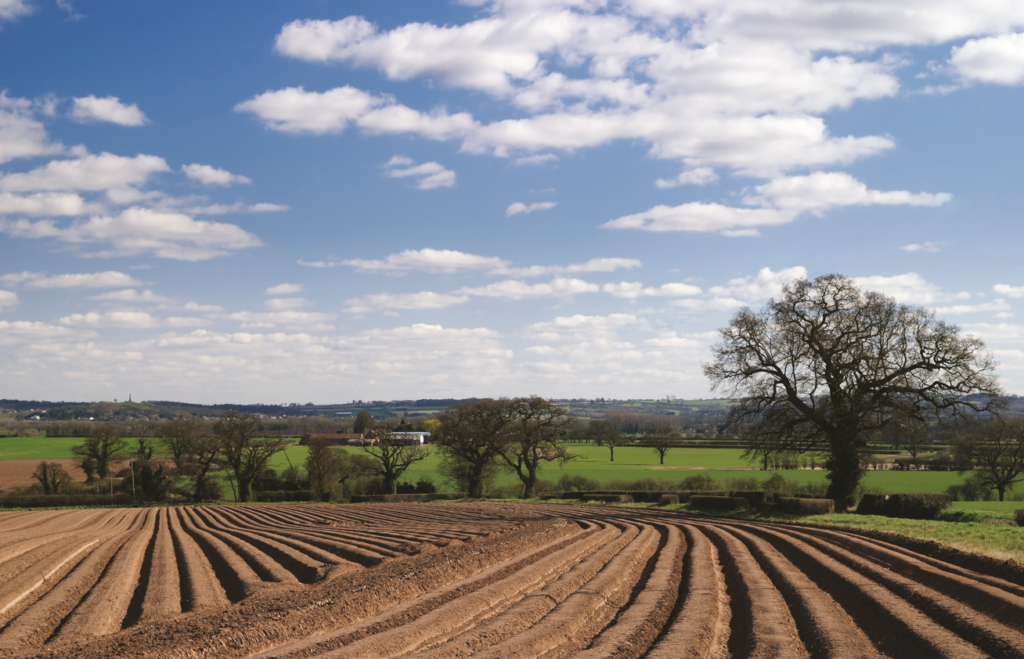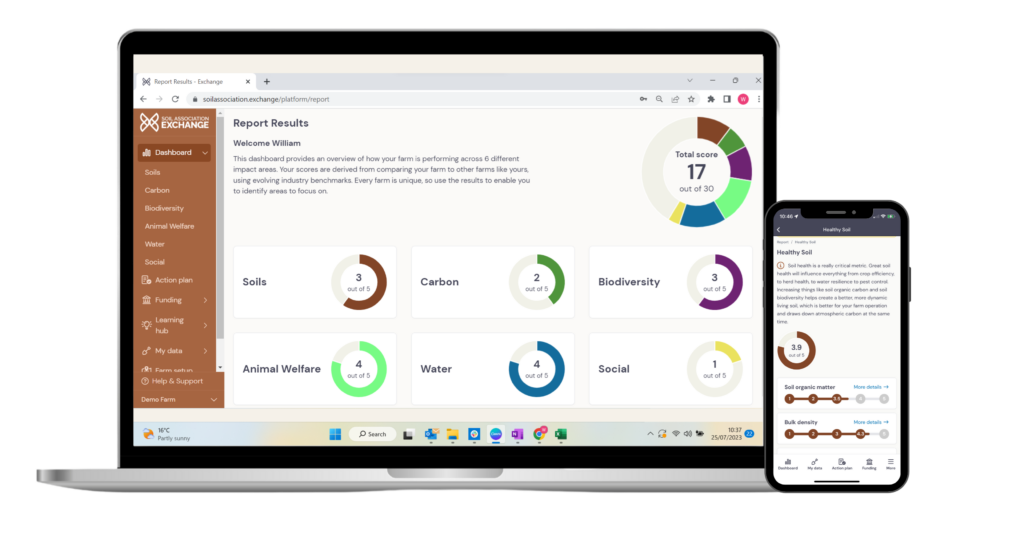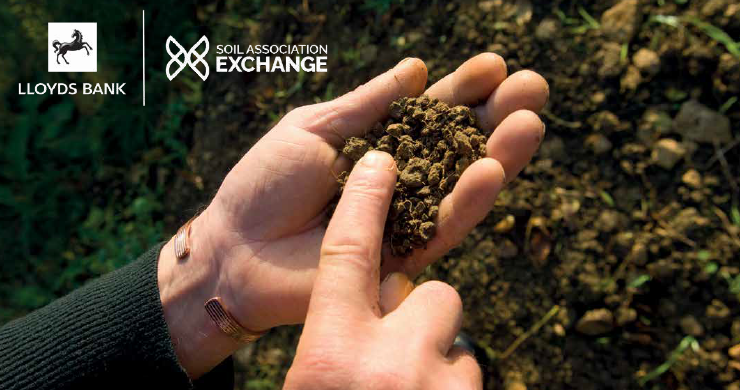Ben Makowiecki, Agricultural Sustainability Director at Lloyds Bank, sets out the Bank’s ambition and actions in supporting Agricultural businesses to reach net zero.
Building resilience is much talked about in UK agriculture. We all know the myriad pressures the industry is facing – from a changing climate, reduced government financial support, and a valid focus on the need to produce and eat more of our UK grown food.
Understanding how your farm is going to respond is crucial, so as part of our longer-term commitment to the sector, we provided initial funding and support to set up Soil Association Exchange. Exchange has been developed by a team of industry experts, scientists, and farmers and is designed to look at the entire farm – not just carbon – to help farmers measure their whole farm’s impact over six key areas, including soil health, water, and biodiversity. It provides a platform to input and store that information and offers access to a host of support and advice, including benchmarking tools that help compare an individual farm to industry averages and tools to help navigate funding.
How Soil Association Exchange works
There are two ways to access Exchange:
Exchange Explore is a free version of the online measurement tool where a farmer enters their own environmental data like soil samples, bird counts and so on. They can then benchmark against other farmers and seek advice and funding information
Exchange Excel is a bespoke paid-for consultancy version involving a farm visit to collect data, as well as remote data like satellite information. A local Exchange agricultural adviser then creates an improvement plan with the farmer, which they can choose to implement, and helps identify appropriate financial rewards, including reducing costs and extra income. Farmers can also choose to share their data with others, for example, higher up the supply chain, to prove the impact of their practices.
Measurement
Measuring environmental outcomes can be complicated, so to ensure the credibility and constant improvement of how to measure sustainability, Exchange always makes its measurement methodology open to critique and commissions a leading scientist to review methodology. It also works with farmers, scientists and industry to ensure metrics work for everyone involved, and the methodology is reviewed by an independent scientific advisory panel. So from soil structure and chemistry, to woodland connectivity, nutrient runoff and water quality, and greenhouse gas emissions, this means the measurement protocol and end-to-end process of generating an ecological farm score has therefore been thoroughly researched and planned.
Such measurement is very encouraging, especially to Beth Metson, head of farming advice at the Soil Association Exchange. “This is where we think we can really add value to every farm we visit. The data is fundamental – but it is the translation of the data into tangible actions that farmers think is truly valuable. Seeing where you might not have scored so well, and creating an action plan of what you can do to improve over time.” Exchange therefore pairs the advice a farmer receives with practical guidance on where they might access funding, helping to incentivise a busy business with many priorities “Without profitability we won’t have these businesses to look after the environment, so farmers need to be fairly rewarded for all the different solutions that they’re part of.”

Finance
Exchange can assist farmers in navigating financial options, including grants to reduce water pollution, sequester carbon, improve biodiversity, and a host of other measures including government schemes.
Improving farm resilience is also of benefit when it comes to borrowing money. From a Lloyds Bank perspective, an environmentally sustainable farmer is a financially sustainable farmer. We want everyone to transition to a point where they can mitigate the risks and become more financially sustainable. There are providers now offering discounted rates for sustainable projects – but it’s the additional income stream from environmental credits that will drive real change. Farmers have a huge opportunity to reach net zero for the agricultural industry and to sequester carbon for other industries, and financially benefit from that, which is so important.
The future of farming
We’re now also seeing farmers buy into the broader rational and relevance of what Exchange is trying to achieve. A good example of this is Robert Fleming from Castle Sinniness Farm, who saw the benefits being more than just measurements. “We got involved very much to help our own business decision making, and that goes hand-in-hand with doing the right thing environmentally. We need to take responsibility for what we do, and for where we stand now – so we know the story from the very beginning.”

Knowing there are options to how a farmer decides to engage with Exchange is something Jerry Alford, farmer, and Soil Association advisor, suggests is where things get really exciting. “We can’t get on the ground and visit every single farm in the UK. But having an option for farmers to input their own data and start using the platform themselves, even if they are smaller farmers, is a great ambition. Farmers know their land inside out, but having one place that pulls it all together will be tremendously useful for them, and in the future, they will be able to see the impact of the changes they make now, which will be really powerful.”
Whichever way a farmer decides to work with Exchange, I can’t help but share in Jerry’s excitement as the potential behind what Soil Association Exchange and its partners can provide to UK farmers over time is definitely something worth investing in.
If you would like to find out more about Exchange, please visit www.soilassociationexchange.com
Lloyds Bank plc authorised by the Prudential Regulation Authority and regulated by the Financial Conduct Authority and the Prudential Regulation Authority under Registration Number 119278.



